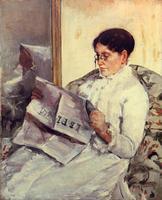
This is a space devoted to the theoretical and intellectual discussions of ENGL 496, Fall 2005.
I have titled this bog in honor of a line in Mary Shelley’s apocalyptic novel, The Last Man. The narrator speaks of the “web of mind” connecting past and future, readings done and readings to be done, and writers across the ages. Her novel is marvelously depressed and convinced of a kind of intellectual stagnation. The same wars rage in the twenty-first century as were ongoing in the nineteenth: the same parliamentary debates regarding suffrage and labor party rights continue. In Shelley’s imagined future, women remain second class citizens and defined by their connections (as lovers, wards, workers, mothers, daughters, wives) to men. And English xenophobia and colonial mindset are entrenched. And yet there is this sense of hope because there is a web connecting all parts of humanity in a network of ideas, of connections between the spiritual, intellectual, and political, between the private person and public citizen, between the stories of represented history and those of an imagined future.
While we are together we will be asking ourselves questions about the purposes, goals, and objectives of literary study in a time and amidst a culture largely suspicious of intellectuals and their questions. The arguments on all sides (there are more than 2) of the culture wars have their roots in conversations that can be traced to Plato and before. What are the dangers of a democratized literacy? Should all people have equal access to all kinds of books? Are each of us equipped for what we might stumble upon? What if we aren’t? What happens when we teach certain texts to certain groups, but reserve other texts for other groups?
Example: Why is somed literature (gay/lesbian literature, for example, or Latin American lit, or Jewish American lit, or Islamic American lit) only accessible to students and/or readers who actively and doggedly seek it out (and many times have to special order it from an independent bookstore which means they have access to information about those bookstores and, in many cases, access to a computer. A person has to be privileged in order to gain access to knowledge, in other words)? Doesn't this problem of access and privilege contradict the humanistic vision of English studies—that it makes us better people by tapping into and expressing the human condition? What is the connection between socio-economic privledge, reading literacies and political voice? And how does it work? To what end do our seystems of priviledge keep us isolated and maintain the political staus quo? (By "political" I mean in the sense of Power, by which I mean having a voice and having one's voice matter.)
In any case, the questions I am working through will join the ideas and readings we read as a collective in agreat web of mind. Like a collective we will come together for discussion, but we may not always agree. Indeed, I hope we will not as it is very hard to grow or deepen one’s understanding when one doesn’t have to think through the ideas carefully and earnestly.
As an example of otehr communities having these conversatiions, check out The Valve: http://www.thevalve.org
No comments:
Post a Comment